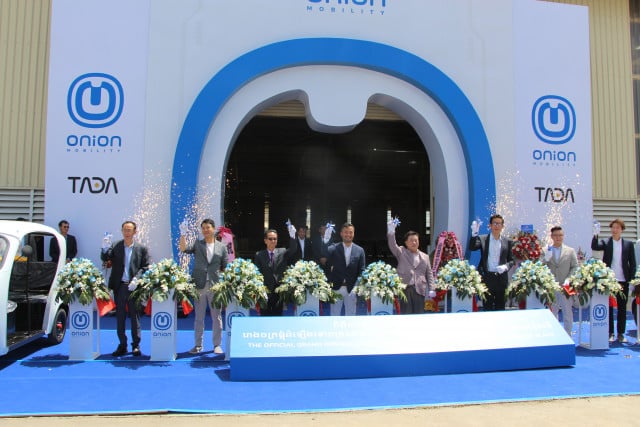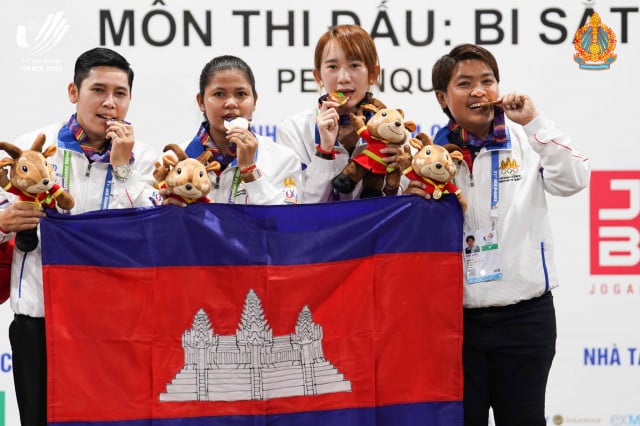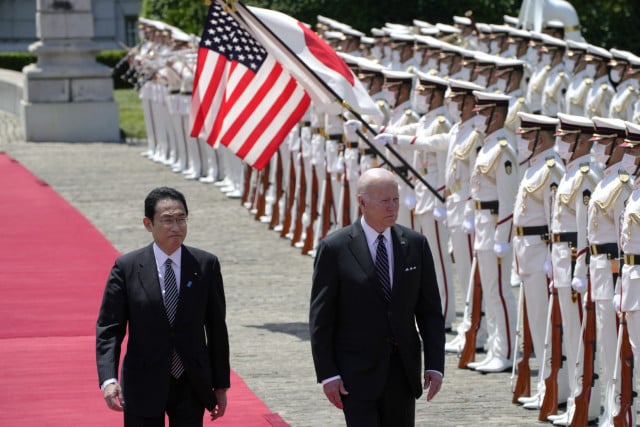Research Freedom Key to Cambodian Progress
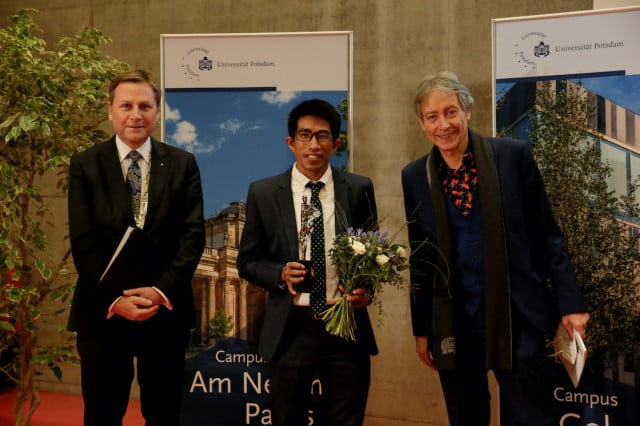
- By Sam Sopich
- February 11, 2022 5:54 PM
Prizewinner Keo Duong tells of studies success
Keo Duong, a PhD candidate at University of the Bundeswehr Munich, Germany, recently won the Voltaire Prize for “Tolerance, International Understanding and Respect for Differences.” He earned a bachelor’s degree in history from the Royal University of Phnom Penh and an MA in Southeast Asian studies from Chulalongkorn University in Bangkok. He has been engaged in developing educational tools, conducting research on Cambodia’s violent past and post-conflict Cambodia, nationalism and ethnic conflict. Cambodianess’s Sam Sopich spoke to Duong about his award and his insight on Cambodia’s research freedom.
Sam Sopich: Tell me about Voltaire Prize. How did you manage to get it?
Keo Duong: The Voltaire Prize is organized by Potsdam University in Germany. It is for young scholars around the world who contribute to the social dialogue on peace, international understanding and tolerance, or who have campaigned for freedom in research and teaching or the right of free expression. The prize is also for those who promote diversity in society and who oppose racism and discrimination.
The two main aspects for me winning the award were my work for more than 10 years contributing to history education and promoting tolerance to ethnic Vietnamese living in Cambodia.
First, my works contribute to promoting a more nuanced and comprehensive education on past violence in Cambodia, specifically the Khmer Rouge history as a lecturer at the History Department of RUPP. Additionally, I worked for different NGOs, most notably Youth for Peace, Kdei Karuna, and Bophana Audiovisual Resource Center where I wrote a book, reports, research papers, and produced films and multi-media applications.
Second, my works promoting tolerance and respect have contributed to a deeper public understanding of the ethnic Vietnamese minority in Cambodia. I am one of a few Cambodian researchers in Cambodia who work on the topic and speak publicly about this ethnic minority, a politically sensitive topic.
Sam Sopich: How have you been satisfied with this achievement, and why?
Keo Duong: I am so excited to receive the prize. The prize is not only to acknowledge my work for more than 10 years but it also motivates me to work harder in my research to contribute to the academic, as well as in my advocacy community in Cambodia and overseas. During the award ceremony, a member of the jury told me that I was chosen to be the winner of the prize because of my careful research, courageous communication, and committed interaction in Cambodia. More importantly, they foresee my further works that will make a greater contribution.
Sam Sopich: Your award also is related to research freedom, which is generally an issue for many developing countries like Cambodia. So, could you please offer your perspective on the freedom of research in Germany and in Cambodia?
Keo Duong: Just recently, Germany together with other European countries signed the “Bonn Declaration on Freedom of Scientific Research” to promote and guarantee the respect of freedom of research which Germany has done to a high standard so far. Therefore, the freedom of research in Germany is far ahead of Cambodia, a least-developed country with a low level of democracy and which has gone through past atrocities and a long civil war.
Freedom of research in Cambodia is not seriously low as researchers still have some space to do research without restrictions. However, because freedom of research associates with freedom of expression, freedom of association, freedom of movement and right to education, researchers in Cambodia still faces several challenges, especially in social sciences, to choose their research topics, conduct research and share their findings to the public and policymakers. Researchers are still cautious about the topics they choose. It is hard to get access to some data. They hesitate or do not want to share findings that could be politically sensitive in current politics. We can say that freedom of research in Cambodia is progressing and very much associated with the level of democracy and freedom of expression.
Sam Sopich: What role do you think research freedom can play in developing countries like Cambodia?
Keo Duong: Freedom of research is very important for all researchers. Any restriction on freedom of research would limit the space of research and subsequently the quality of research. For social science research, the research basically helps to advance knowledge, solve problems, find trust, combat wrong understanding, promote love and peace and provide up-to-date information. As the Bonn Declaration on Freedom of Scientific Research says, “Scientific research benefits the people and society through the advancement of knowledge. Freedom of scientific research is a necessary condition for researchers to produce, share and transfer knowledge as a public good for the well-being of society”. It is believed that a better future also relies on freedom of research that can bring the best findings.
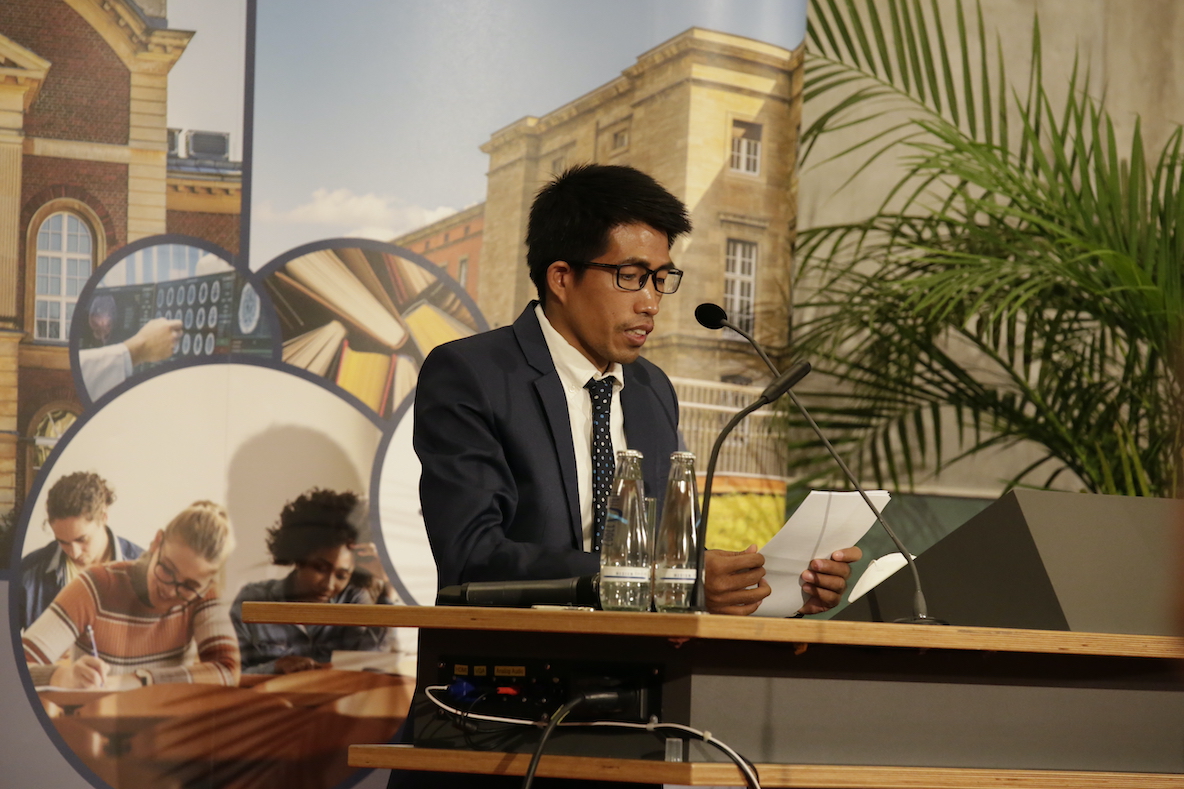
Sam Sopich: What do you think can be done to support freedom of research here?
Keo Duong: According to research on Cambodian higher education, research shows that Cambodia is at a low level of promoting research skills and is facing many challenges. Three main components, including democratic government, adequate financial support and reliable policy and research uptake, are seriously low while academic freedom, infrastructure and safety of research are moderate or low. It shows that we have limited freedom of research, lack financial support for research and infrastructure together with a lack of human resources in higher education. These are the challenges to promoting research skills in Cambodia. Additionally, a culture of research is still low among the public as well as among professors/lecturers at higher education.
Sam Sopich: How can we deal with these rising challenges?
Keo Duong: To address this issue, those relevant stakeholders need to be involved in the process of promoting a culture of research and freedom of research in Cambodia.
First, the government needs to guarantee freedom of research, allocate sufficient financial support to research institutions, especially higher education, and give value to academic research by using research findings as foundations to their policymaking. Most importantly, the government needs to address the issue of political influences on higher education and research.
Second, research institutions, especially universities, need to promote academic research by providing research infrastructure and financial support to researchers. Researchers have to be transparent and avoid bias, especially political bias in the case of our country. The Ministry of Education may need to reassess the quality of higher education by using existing research on the topic as well as conducting more research.
Third, we acknowledge that we still lack human resources and financial support to do as much as we want. We need to collaborate or need support from international partners to strengthen our research skills.
Sam Sopich: If research freedom still progresses slowly while the country develops quickly, what do you think will happen?
Keo Duong: Research can be the guideline for both private and public sectors' decision-making. Without adequate scientific research, quick development may affect the quality or sustainability of the development and the public interest.
I can see in the field of history that the public, political and social actors rarely use scientific research to support their ideas or decisions so they may end up using wrong information, rumors, myths or political propaganda that could affect the well-being of society, peace and respect of differences. In the age of technology, the method of sharing information is broadly done through social media, while the information from scientific research is limited. Consequently, the public may absorb wrong information from their social media interaction. Therefore, defending the freedom of research will help to increase the quantity and quality of research.






